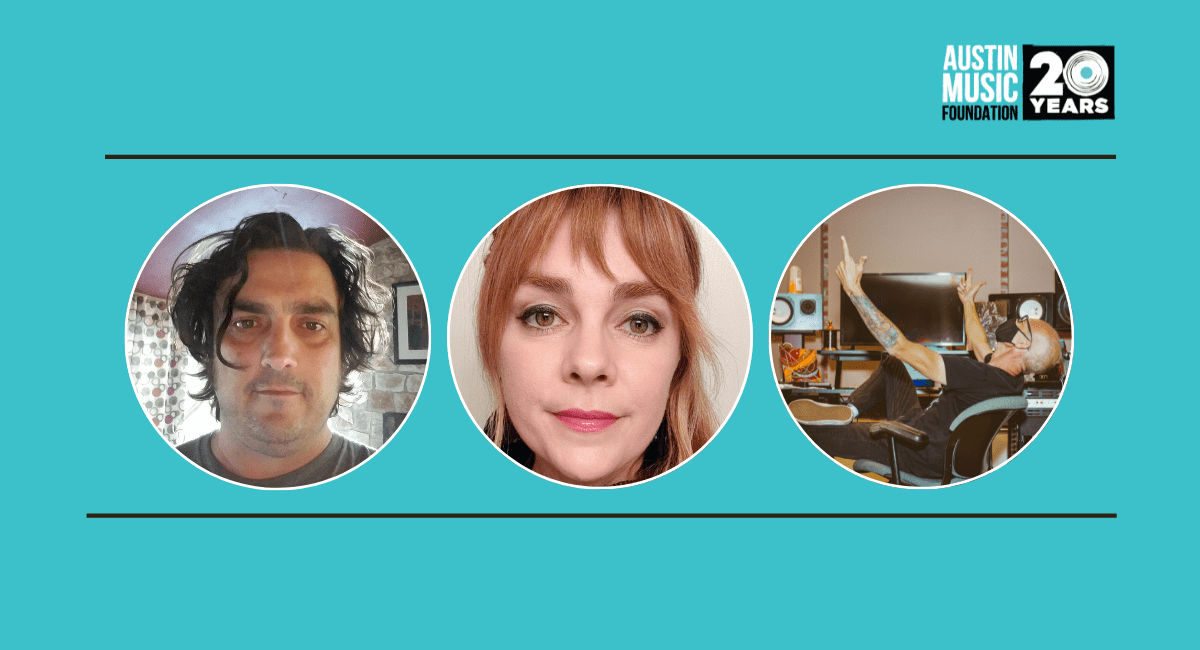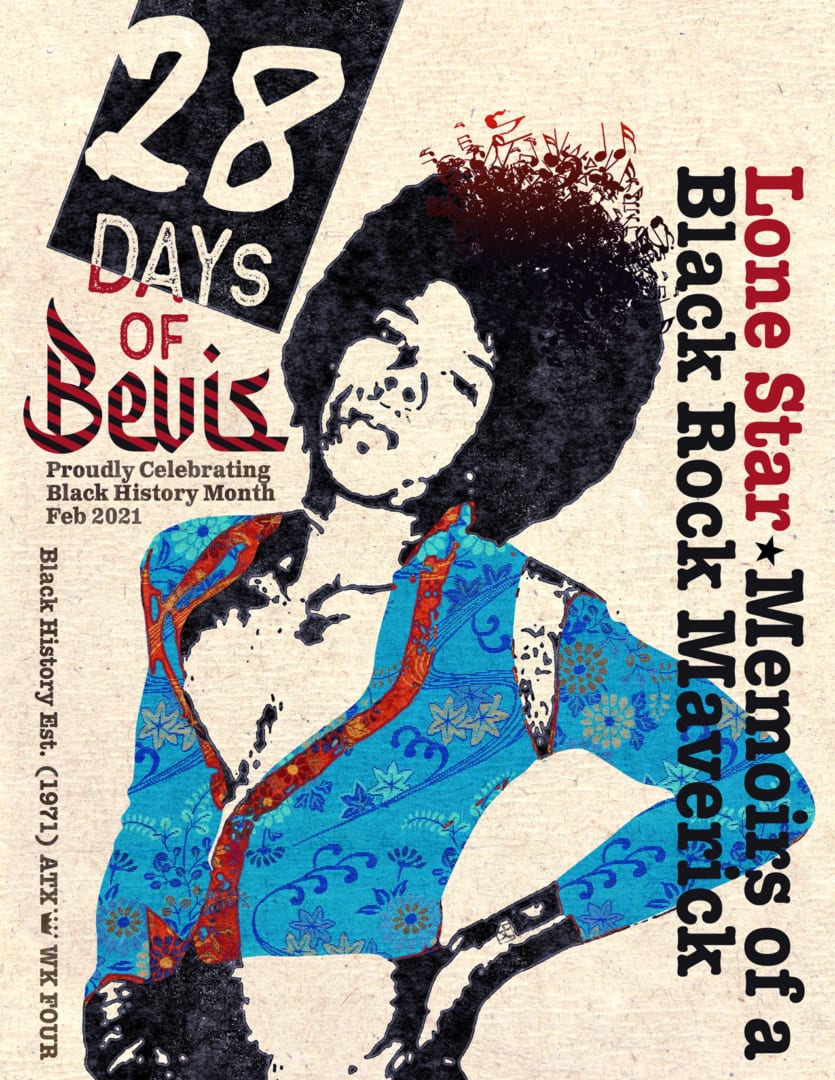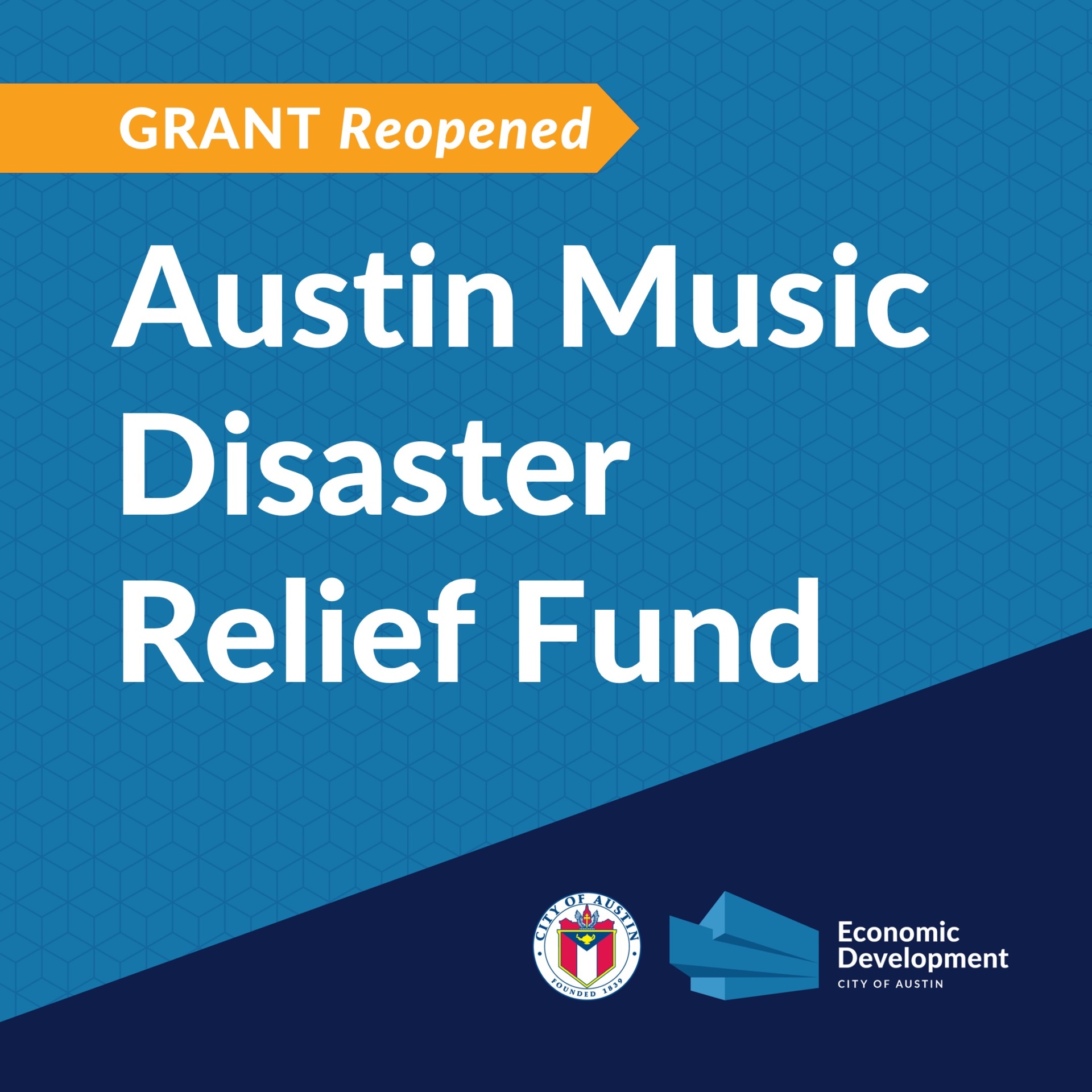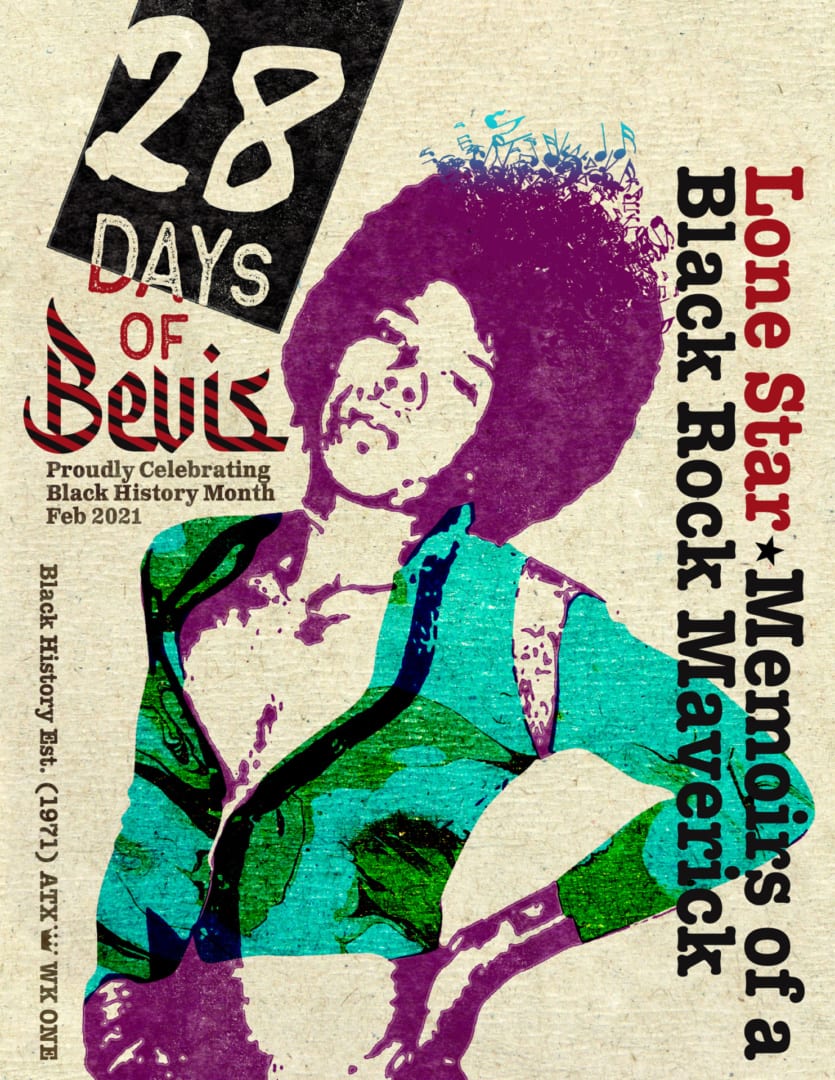The Music Mentors You Didn’t Know You Had: AMF’s Team & Alumni Share Their Strategy at SXSW
Written by Alex Perez, AMF Intern
SXSW has wrapped! Its return after a two year hiatus was a successful one and served as a well-timed social refreshment for the community, creatives and attendees. Well done to all the SXSW members and staff that helped put on a historic conference this year.
In our last blog piece, we talked about SX’s anticipated return and featured an interview with Quentin Arispe, from Quentin and The Past Lives to discuss being an Official SXSW Artist and how their time in AMF’s Austin Development Program has helped them in their career.
With the festival’s end, we wanted to highlight some of the insightful AMF consultants and board members that were selected this year as SXSW mentors. We reached out to Michael Starr (AMF Board member & Head of Promotion at Glassnote Records), Einar Pedersen (touring musician, The Bubble studio producer and AMF Resident Artist Consultant) and Adrienne Lake (former AMF Guest Artist Consultant & co-owner of Daydream Believer Creative ) for insight on this year’s artist consultation trends, their come up in the music industry and a little guidance for newcomers looking for their way in the music industry.
Interviews
Michael Starr AMF Board member & Head of Promotion at Glassnote Records
- It’s so great that you served as a music mentor for SXSW! Can you tell me about your experience getting to where you are now in the industry?
I’ve actually mentored for SX for many years. It’s sort of my favorite thing to do because generally the festival is so busy for me on the label side of things–especially if my label has artists (as we usually do). I had a couple of artists that I had to deal with, so generally my entire SX is focused on putting all of their weeks together and just living by that schedule. Doing the mentorship helps me give back in a way, and I love it because usually I’m meeting hungry young musicians or future executives trying to find their footing and place in the world. For me, it’s a way to give back. You know, I was a young guy in college at Texas A&M figuring out how to do all of this while I managed a record store back in the early 90s, so it reminds me of the people who would take me in and mentor me whenever I had all of these questions. The mentor panels have always been my favorite thing to do [because it] lets me actually give back to the people that spend all that money to come to Austin and want to get something out of it. In terms of my experience getting to where I am in the industry… It’s a long story, but I was in college, working at a place called Hastings Books Music and Video which was a regional chain that existed [then], and when I was at Texas A&M that was how I had to pay my way through school and get gas money and all that kind of stuff. Eventually, I figured out that I wasn’t going to be a musician in a band and live in LA. I was going to live a normal life, but music was always my thing, so they moved me to the music department of that store and I very quickly became the music manager. During that time in the 90s it was the grunge era, and I had a lot of record companies and distribution companies calling my store because I was selling records by bands that weren’t necessarily big at that moment, but in about 6 to 8 months they became this big band. A lot of those people would come and say “How are you selling all of this Weezer?” Or“How are you selling all of this Jeff Buckley?” [Things] like that, and I would just be like, “It’s a great record, have you listened to it?” Instead of going on spring break trips to like South Padre, I worked all the time. I would take spring breaks and I would drive to Dallas back when they had distribution companies there and labels had offices there, and I would meet with these people who were calling me on the phone, make friends with them and figure out what they did. I started networking heavily when I was in college and I got my first job working in the music industry fresh out of college in 1995.
- How was your experience mentoring at SXSW with its return this year and what did it entail?
There were a lot of hungry, young college kids about to graduate. Hopeful, but very unsure of what’s about to happen coming out of the pandemic and where job opportunities are going to be in the music industry. I felt like that was the majority of my meetings. The last two years have been very unorthodox and quite hellish trying to learn to not be as social as we typically are. I think a lot of kids just wanted to have some hope really. That’s what it felt like to me. Like “What do you think the music industry is going to look like?” and I was hopeful for them. I tried to push with a glass half full scenario. I just tried to give encouraging words. It might not happen right out of the gate, but do all you can to get your feelers out there and your outreach out there. Think about what you really want and hone in on trying to make the moves to line you up with opportunities.
- What were some of the trending topics that artists were asking about this year?
It was mostly non-music related. It goes down to the power of social media these days and just really finding your way there and building your base and profile. Which to me is not really music driven in terms of the heart of what we do, but it’s just that beast that everybody has to tie into as an artist. If you’re a young artist trying to grow, it’s amazing how powerful it can be especially during the pandemic when people were locked up. Obviously, the trick is how do you stand out? How do you connect the dots to similar artists? How do you tap into those fans? It’s really about educating yourself more about that. What content matters? What doesn’t matter? What moves the needle, in other words and what doesn’t. That was a lot that came up I noticed. Another one that was a big one was; how to find opportunities for syncs and licensing for getting placements in TV shows and movies.
- What are the main concepts that you generally cover when giving one on one coaching?
Generally I tell people if you’re a musician or if you’re somebody that’s trying to crack into the industry just professionally. It’s just about believing in yourself. A lot of things get thrown at you in life that give you a lot of doubt in yourself, in the future or in things. I generally tell people to look deep within themselves and try to be really realistic of what you see your future as. If your goal is to play stadiums around the world or if your goal is to just be a musician who can keep a roof over your head and enjoy the rest of your life figuring it out or if it’s about you wanting to be the biggest executive in New York city. A little bird a long time ago when I was in college told me. When I was just trying to figure out all this. They just said, “hey as long as you know what you want to do and as long as you firmly believe that and you can somehow mentally take any of that doubt and naysaying out of your brain and just be very clearly focused on, i’m going to do this”. As long as you firmly believe that and you’ve got all those doubts out of there, I feel and strongly believe it’s always going to happen. It’s just when that doubt sets in, when you start to question yourself or when you start to second guess yourself, that’s when you tarnish things. For a young up and coming artist that is still just trying to find their way and even kids who want to be the head of promotion at a label, it’s okay to have a plan b. It’s okay to have a plan c. Life gives us lots of bumps and curves and changes so don’t feel like you’re a failure if you do have to pivot and go to a plan b or plan c. Don’t feel discouraged by it. It may end up being a better thing for you.
- Knowing what you know now, what is one piece of advice that you would give to a younger version of yourself for navigating the music industry?
I was really lucky in the sense that I always liked being in Texas but also I was quite resistant to taking those opportunities that I could have taken in LA, New York, London or something like that over the years. I don’t regret it though. Those are just things that if I looked back on it’s like, “I could have done that to have those extra experiences.” I go to LA and New York enough to know that I never want to live there, but if I had been much younger now, I probably would have been a little bit more open to those opportunities.
Einar Pedersen Touring musician, The Bubble studio producer and AMF Resident Artist Consultant
- It’s so great that you served as a music mentor for SXSW! Can you tell me about your experience getting to where you are now in the industry?
I guess it’s a long road. Which is important I think, considering we always want to pop off fast, especially when we are young. It’s not even anxiety. It’s just like an anxious energy to make it happen but, this is a life. This is something that usually takes a minute before it starts moving in a direction where it starts keeping the lights on for you. I think that’s why I’m suitable for a mentor, because I’ve had a lot of experience failing mostly. My resume is awesome, but you put a resume together to highlight the highlights but with everything there’s a balance, and the cooler the stuff is the bigger the balance. I think that’s part of it. I’m turning 52 years old on Monday. I was irrelevant a long time ago. This is a young person’s sport and I think the fact that I’m still going kind of has a lot to do with not thinking that I know what the next step is about. Being open to interpreting the world around me. But, if there’s one thing that’s the reason that I’ve been able to last this long, it’s because I only ever really concentrate on one thing and that’s music and being better. Recognizing what’s around me. It’s recognizing that whatever I want out of this life, whoever I want that from whether it’s a gig at a club, a song on the radio or a spot in a band. Whatever you want, those people all have lots of options and most of those options are ones that you yourself would choose as a fan over yourself. As an individual going out for gigs, you have to make them want you. As an artist or a band going out for fans, you have to compel them to want to choose you over all the options. It’s a humbling feeling to know that there’s all those options out there for other people but if you can just focus on that and be okay with it, then you’ll concentrate on the right things. You’ll concentrate on becoming an option and sometimes, that doesn’t have much to do with musicianship as it does with your overall presence and being. How are you on and off stage? Mostly off because you spend more time off of it then you do on it.
I’ve just been around the block man and i’ve played with big artists, i’ve played with small artists. Basically everything that anybody’s looking for, I’ve either done it or I’m doing it right now. Two nights after I played Wembley stadium for the first time, for instance, I played in a hole in the wall like two nights later. It’s not like you hit these things and everything else you just forget about. It’s a constant return and it’s great.
- How was your experience mentoring at SXSW with its return this year and what did it entail?
The one thing that just drives me nuts is that it’s only 15 minutes. To me, that’s insulting to the artist that’s coming in because what it does is it further paints the picture that there’s some sort of road map. “Here’s how you make it in the music business. It’s just 15 minutes to sit with me and just map out this thing and you’ll be a giant rockstar and you’ll have 10 boats!” No, this is different for everyone because this is not a career choice. This is a life and it’s like playing pro sports. There’s only so many spots on the team at a level that you want to ascend to. But even every level, right down to a local musician level. Take Austin for example. 5,000 something artists or bands competing for 250 clubs. Just right there, that shows that there’s only 250 Friday night spots for five thousand people.
What I’m saying is it’s not like if you wanted to be a doctor. Here’s literally point a, b, c, d. You complete all these things, you’ll be a doctor. Music is not that. There’s so much digging into each individual person to find out the differences between what they think is in their way and then you dig down and find out what decisions they might actually be making that aren’t necessarily reasons but sort of excuses. Just talking about anybody’s path. Where are you at right now? And what are you looking to do? 15 minutes is like nothing. I do an hour with AMF consultations and rarely do they only go that long. The other day, I had one that lasted two hours. And I don’t mind because once you get talking about stuff and you dive deeper and deeper, you look over all the stones to find something about this individual that’s right there. This is what you’re looking at you think is a bummer, but it’s actually awesome. Finding out the real things to help somebody out takes more than 15 minutes, so at SXSW, I literally just only talk about; “look,we’re just going to talk about right now. You don’t have to answer any of this unless you want to, but we’re going to talk about right now. What are you, or anybody around you, not saying about what you wish was cooler about what it is that you do? You can talk to marketing or any of these people that are way better than me and know way more about it but you’re trying to be an artist. Let’s talk about art and let’s talk about if you’re satisfying yourself as a fan. We usually have a great 15 min conversation but i wish it was 30 or an hour.
- What were some of the trending topics that artists were asking about this year?
Everybody’s different but there was this one guy that wanted to get into writing for other people, licensing and stuff like that so we kind of just talked about a few aspects of that. One girl had just taken a long break off. She was looking for advice on getting back in a world that was totally different from when she left ten years ago. One guy just wanted to talk about songwriting and he was awesome.
- What are the main concepts that you generally cover when giving one on one mentoring?
There’s so many things that are difficult. So many obstacles and I think it’s important to look at all your frustrations. Even make a list of the things that are frustrating, the things that are in your way, the things that keep you from doing whatever it is that you are trying to do and then look at all of them and see how many of them are common with everyone. It’s a real gut check because we find ourselves. I’m guilty of it. Everybodies guilty of it. It’s important with everything that you seek and everything that is a bummer to really try and look at what it’s like on the other side of the computer. What is reality? When you line up all the things that are in your way and you recognize that, “well this is everybody, this is everybody.” When you knock all of those things down and it’s just a few things, hopefully now you’re left with things that are special to you. Instead of looking one way, where 90% of the people are looking, look at the people who are turned the other way and are doing something else. What they’re doing is probably a bigger sacrifice than what you’re doing but recognize their results.
Knowing what you know now, what is one piece of advice that you would give to a younger version of yourself for navigating the music industry?
I think I would just say as hard as you work, you probably need to work harder. Just being fluid and concentrating on being awesome. Try concentrating on being something that competes with what it is that you see around you and the environment that you wish to compete in. It’s really that simple.
Adrienne Lake former AMF Guest Artist Consultant & Daydream Believer Creative Co-Owner
- It’s so great that you served as a music mentor for SXSW! Can you tell me about your experience getting to where you are now in the industry?
It started back when I was a teenager going to shows regularly at a DIY type warehouse venue in Tucson called The Downtown Performance Center, where ALL the good bands played, from Bikini Kill to Jon Spencer Blues Explosion. It was the only place I was allowed to go as a teen and after I graduated, the owner gave me a job, making posters, working the door and helping with security and booking (thanks, Steve). I got really involved in the music scene and eventually moved to Los Angeles after graduating from college with a degree in media arts.
A friend got me an interview as an A&R assistant at Giant Records, which miraculously I landed… somehow. I had a good relationship with my boss, the head of A&R who had a long history in the business so it made getting jobs a lot easier after that.
That led to a position at Capitol Records and then DreamWorks, where I worked with the head of business and legal, Richard Leher, who was also an attorney for the Rolling Stones and I learned a lot. I owe Richard a lot because he really looked out for me and saw that my interests were more creative and helped create a Junior A&R executive position for me. That’s when I got to work closely with Elliott Smith, Jimmy Eat World and a handful of other bands as well as scouting for new ones.
I knew I wasn’t going to be in Los Angeles for the rest of my life and my long-term plans were to move to Austin but a pit stop in Tucson turned into a longer stay when I began booking at my favorite club, Club Congress and then got a great job as a music journalist for the Arizona Daily Star. I really enjoyed the freedom they gave me as a writer and was able to travel to Coachella and SXSW as well.
When I finally made it out to Austin, I landed at the very unique Spider House Cafe & Ballroom, where I was the director of marketing and booking and had a lot of creative freedom. That led to the senior talent buyer position at Heard Presents where I booked local national and international shows at the Parish and Empire Control Room and Garage as well as other Texas markets like San Antonio, Houston and Dallas. From there I received an offer for a music festival programmer position at SXSW, the fateful year that Covid hit and I was never able to see all the amazing shows I worked on actualized. But there were much bigger issues going on in the world. After the layoffs, the Austin Music Foundation reached out about doing artist consultations for them which was a godsend and probably my favorite thing that I’ve ever done. These artists were blindsided by losing the ability to play live shows and some were panicked and lost. It felt so good being able to help them. I did around a hundred consultations for them, and there were times where artists asked if they could hire me to help them with the things they needed. So I checked with AMF and they were all for it. So starting my own music consulting and PR company (Daydream Believer Creative) along with my amazing business partner Charlie Faye happened very naturally. We haven’t formally announced and all businesses coming in word of mouth but it’s been very steady. I absolutely love it. I started out just working with artists but shortly that segued into working with music businesses as well. Working with artists and businesses that align with your values is a dream come true and I absolutely love it.
What my experiences have taught me is that this is a business of relationships, even more than other businesses and it’s important to be honest, have integrity and do good work. If you do, it will be noticed and you will advance. Show up, support others and they will support you.
- How was your experience mentoring at SXSW with its return this year and what did it entail?
This is my third year mentoring for SXSW and it’s such an enjoyable experience. You get to meet people from all different areas from all over the world and sometimes make long-term connections. One thing that I learned is that if you have an opportunity to connect with a mentor, make sure you make it count. There was only one mentee that sent me information on themselves ahead of time so we could make the best use of our short 15 minutes together. The others just sent me a list of what they wanted to talk about.
- What were some of the trending topics that artists were asking about this year?
I met with a few college students in music who wanted to know how to advance in their careers after they graduate. The artists filled me in on where they were at this stage and the general question was how to level up. Interestingly enough, a lot of artists don’t recognize the gains they have already made and it’s very encouraging for them to be reminded. It’s easy to get discouraged and overwhelmed so it’s important for artists to take stock of what they have done and what they have worked for them and build a plan based on that. For some artists it’s just a matter of being overwhelmed so I advise them to sit down with their bandmates or advisors and put a plan on paper, with goals that can be reached one at a time so it’s more manageable.
- Knowing what you know now, what is one piece of advice that you would give to a younger version of yourself for navigating the music industry?
Staying true to yourself and your ideals has gotten you far, so stay the course and keep forging meaningful long term relationships. Be better at staying in touch with people because these relationships are important then, now and in the future. Also, take more risks. If I had been open to that I would have started my own business many years ago. Most importantly, trust your instincts. They almost never mislead you.
We would like to thank Adrienne, Michael and Einar for providing us with their time and shedding some knowledge for young independent musicians looking for their footing in the music industry. In our last blog we highlighted the path and opportunities that our ADP artists have taken with our Artist Development program. The importance of a mentor figure that is willing to elevate the next generation of musicians and help spark their journey is unimaginable.
As an independent artist, creating a solid and sound foundation for the future can seem like a daunting pursuit. Going in blindly and trying to decipher the ins and outs of writing good music and distributing it correctly is often the breaking of the camel’s back for many aspiring artists. Having a voice over your shoulder shedding some sense of direction helps relieve the anxiety and self doubt that comes with the overload of things you have to worry about as an artist developing your career. Our mission is to strengthen and connect the local music industry and community through innovative programs that empower musicians, music industry professionals, and music businesses within Austin’s creative economy. Whether it be through our one-on-one consultations, workshops, bootcamps or mixers, Austin Music Foundation is proud to be celebrating 20 years of service to the Austin music community.
There are many resources out there that can be a great help in understanding and unlocking your next step as an artist. Reaching out to those knowledgeable mentor figures and applying their experiences and anecdotes into your journey can help guide the way if you’re not sure exactly how to go about it. Austin Music Foundation believes in the process it takes for an artist to develop their career and build success. We want to do our part in helping the future of the music industry by providing ambitious independent artists with the tools, guidance, education and mentoring to unlock opportunities.
If you would like to schedule a free online AMF artist consultation with resident consultant Einar Pedersen, visit our website https://austinmusicfoundation.org/virtual-consultations-request/.







